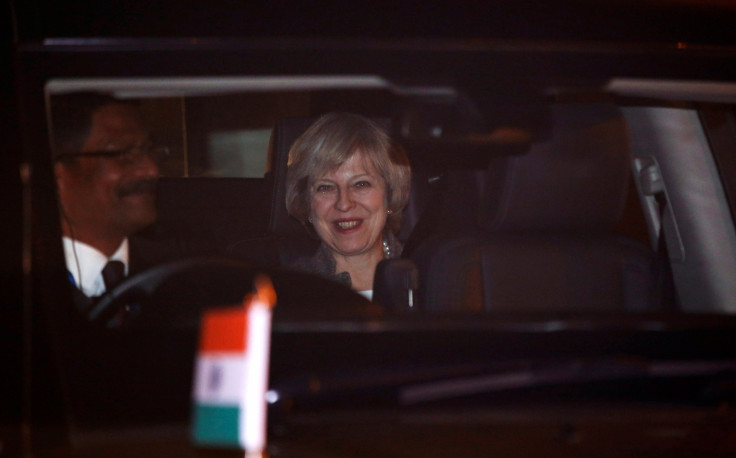Theresa May backs press freedom after Brexit ruling backlash
Speaking to journalists at 37,000 feet, the PM also defended the 'independence of the judiciary.'

Theresa May said she values the "independence" and "freedom" of Britain's judiciary and press following a High Court ruling that the government cannot trigger Article 50 without Parliament's backing.
The unanimous decision by the three judges on Thursday (3 November) was attacked by sections of the media, with the Daily Mail labelling them "enemies of the people", while the Daily Express claimed it was "the day democracy died." The government is appealing the decision and the prime minister claimed it will present robust legal arguments to Britain's highest court.
Speaking on board a flight to India to send out a message that Britain is open for business, May said: "I believe in and value the independence of our judiciary. I also value the freedom of our press. I think these both underpin our democracy and they are important.
"Of course the judges will look at the legal arguments. We think we have strong legal arguments and we will be taking those arguments to the Supreme Court," she added.
The government believes it has the power to set Britain's divorce proceedings from the European Union (EU) in motion by exercising Royal Prerogative. May insisted that the Brexit timetable will remain unaffected and called on the political elite to respect the result of the referendum.
"What's important for MPs and peers is to recognise that parliament voted to give the decision on our membership of the European Union to the people on 23 June – a majority voted and we should now deliver," she said.
The Conservative leader also refused to budge on the issue of immigration control, saying: "I think it was an important aspect that underpinned people's approach to that was a concern they had about control of movement of people from the EU into the UK. I believe it is important for the UK government to deliver on that."
During the three day visit to India, May is looking to lay the foundations for a free trade deal after Britain leaves the EU, with commerce and travel visas also expected to be important features in the talks. But May will need to exercise her diplomatic skills, with New Delhi making it clear that it will heap pressure on the prime minister to ease restrictions on Indian nationals coming to Britain, particularly students.
© Copyright IBTimes 2025. All rights reserved.






















